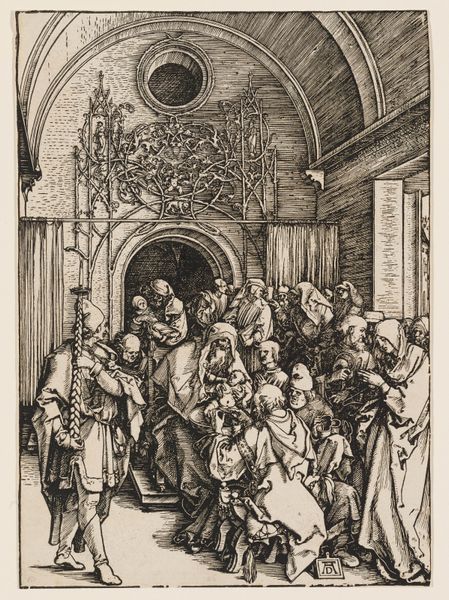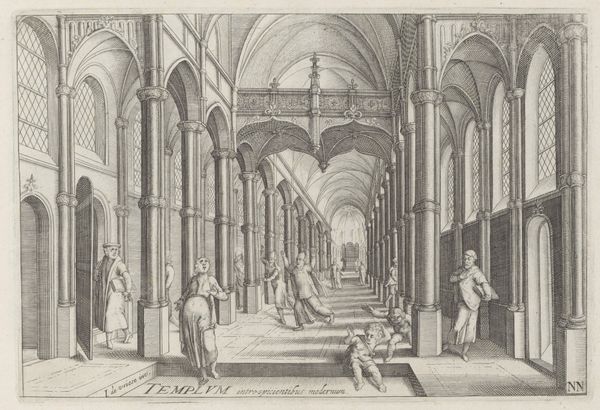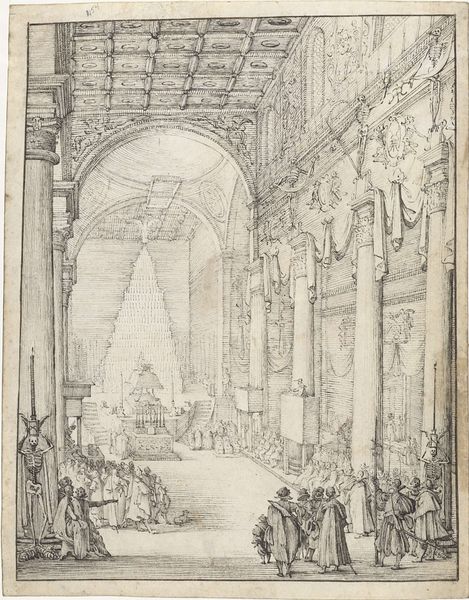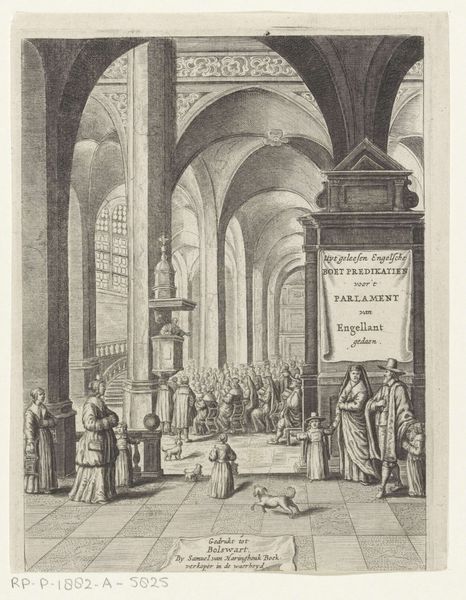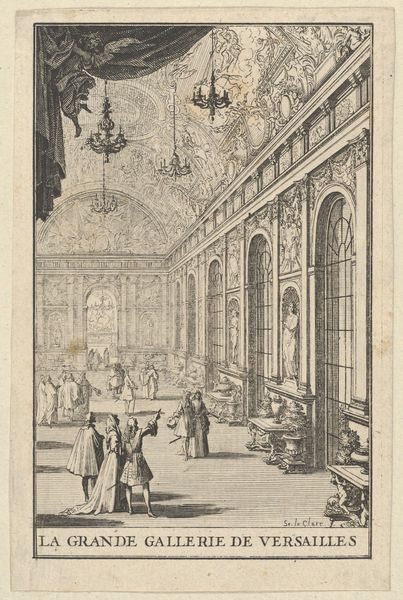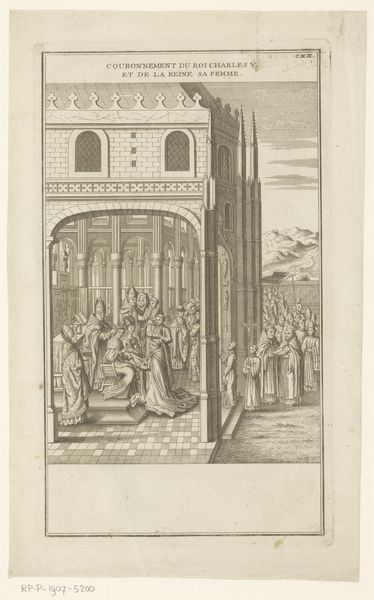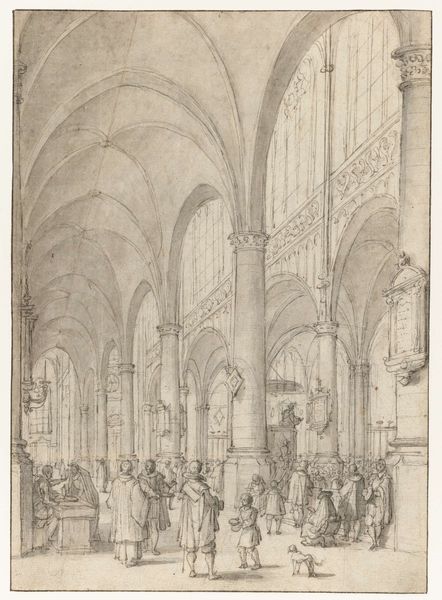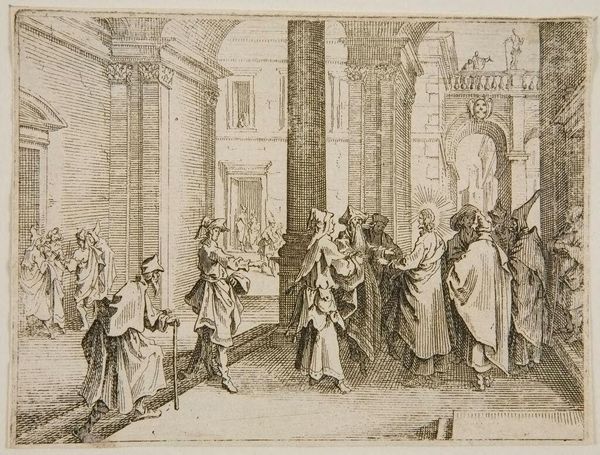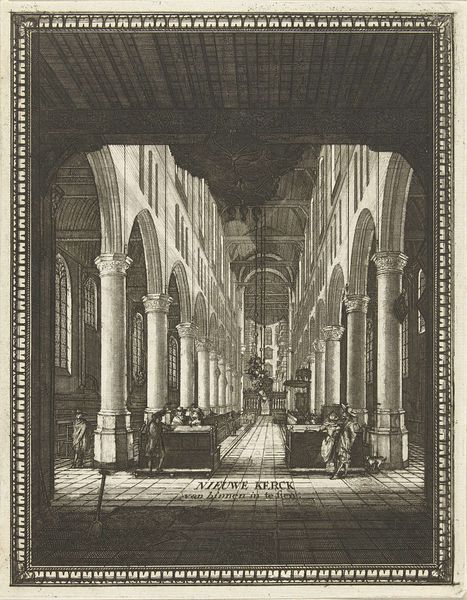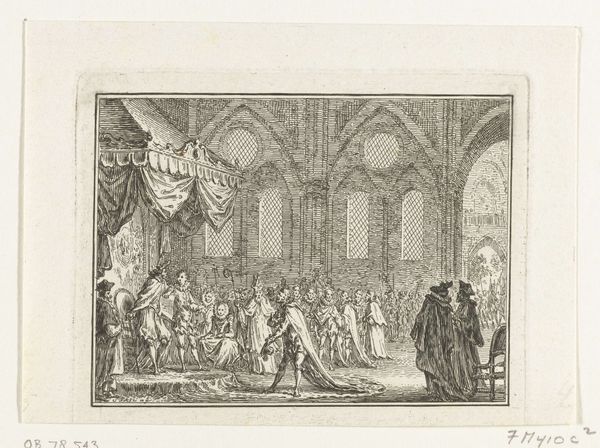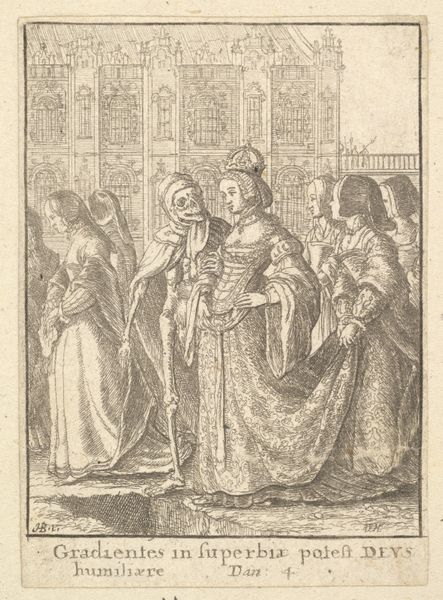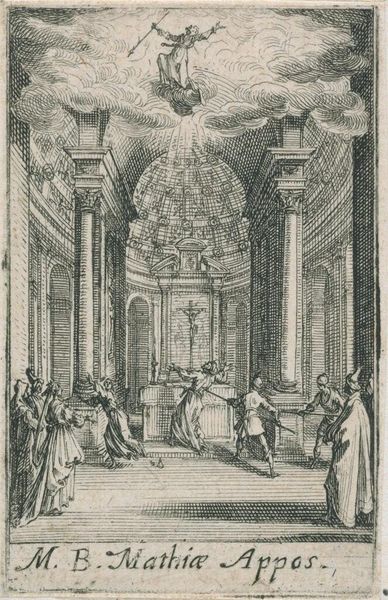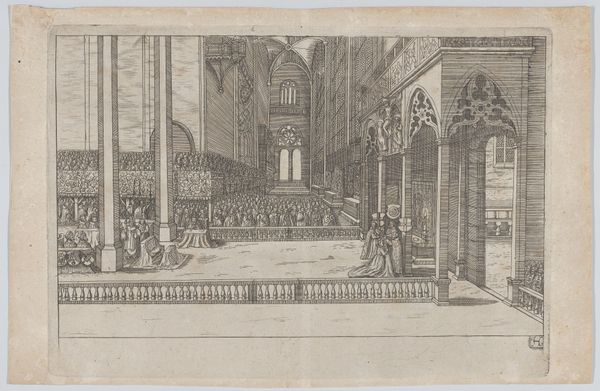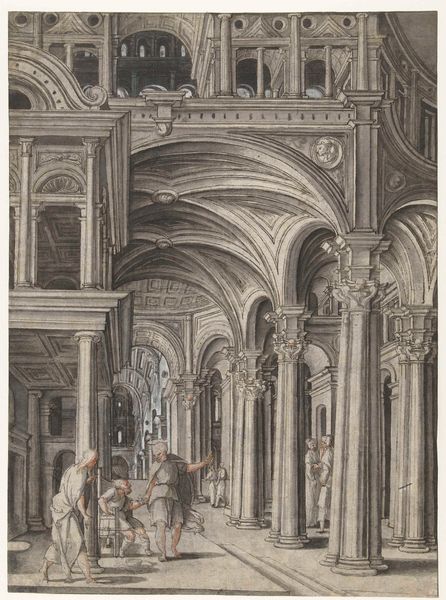
print, etching
# print
#
etching
#
perspective
#
figuration
#
line
#
genre-painting
#
history-painting
#
italian-renaissance
#
realism
Copyright: National Gallery of Art: CC0 1.0
Bernardino Capitelli’s ‘Interior of a Church’ was made in 1631, using etching. This printmaking process allows the artist to create an image on a metal plate, using acid to bite into the lines. The character of the etching process is very present here. See how the artist has built up tone with closely-hatched lines, and allowed the white of the paper to describe the architecture. This is a world away from painting, where colour and shade are built up with layers of pigment. With printmaking, the artist is inking the recessed lines of the matrix and then transferring it to paper using pressure. This etching is about more than the architecture, however. Look at all those figures within the church, caught in moments of prayer and observation. What might their social status be, how do they relate to one another, and to the vast, impressive space that contains them? By considering the materials and processes used to create this print, we can gain a deeper understanding of its cultural significance. Etchings like this were relatively inexpensive to produce and disseminate widely, and thus reach a broad audience.
Comments
No comments
Be the first to comment and join the conversation on the ultimate creative platform.
